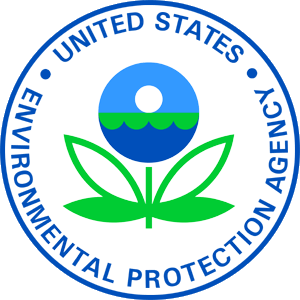EPA Releases Draft Health-Based Recommendations for PFAS Levels in Bodies of Water
Criteria can be used to inform water quality standards to protect people from exposure to PFAS
WASHINGTON – Today, December 19, the U.S. Environmental Protection Agency announced draft national recommendations for health-based levels of per- and polyfluoroalkyl substances (PFAS) in waterbodies. Once final, these recommended criteria can be used by states and authorized Tribes to set water quality standards that help protect people from exposure through consuming water, fish and shellfish from inland and nearshore waterbodies that may be polluted by these PFAS.
Human health criteria are developed under Clean Water Act Section 304(a) and are based solely on the available data and scientific judgments about the impacts of pollutant levels in the water body (in this case PFAS) on people’s health. Human health criteria are based on the latest scientific knowledge and do not consider economic impacts or the technological feasibility of meeting the chemical concentrations in ambient water, though Clean Water Act tools that use human health criteria may incorporate such factors.
The draft recommended human health criteria for PFOA, PFOS, and PFBS are based on the latest science, including final EPA human health assessments, fish consumption rates, drinking water intake rates, national bioaccumulation factors, and relative source contributions.
EPA will accept written comments on the draft human health criteria for 60 days upon publication of the associated Federal Register Notice. Learn more about EPA’s draft human health water quality criteria.
NOTE: This press release was submitted to Urban Milwaukee and was not written by an Urban Milwaukee writer. While it is believed to be reliable, Urban Milwaukee does not guarantee its accuracy or completeness.
More about the PFAS Problem
- Gov. Evers Signs New PFAS, Lead Regulations - Danielle Kaeding - Mar 2nd, 2026
- Gov. Evers Builds Upon Efforts to Clean Up Wisconsinites Water, Approves New Rule Changes Strengthening Pfas Drinking Water Standards - Gov. Tony Evers - Mar 2nd, 2026
- PFAS Levels in Great Lakes Fish Are Dropping - Danielle Kaeding - Feb 6th, 2026
- Gov. Evers and GOP Lawmakers Near a Deal on PFAS Pollution - Danielle Kaeding - Jan 22nd, 2026
- Gov. Evers Optimistic About Reaching Final Deal With Republican Lawmakers to Secure Release of $125 Million in Long-Awaited Pfas Investments - Gov. Tony Evers - Jan 21st, 2026
- Bipartisan Push to Tell Counties Faster When Water Tests Fail - Henry Redman - Dec 19th, 2025
- MKE County: County Seeks to Sue PFAS Producers, Oil Companies - Graham Kilmer - Dec 10th, 2025
- Wisconsin Reviewing EPA-Approved Pesticides For PFAS - Danielle Kaeding - Dec 9th, 2025
- State Nears Settlement with Johnson Controls/Tyco Over PFAS Spills - Danielle Kaeding - Dec 4th, 2025
- Senate Bill Promotes Soybean-Based Firefighting Foam to Replace PFAS - Danielle Kaeding - Dec 2nd, 2025
Read more about PFAS Problem here
Mentioned in This Press Release
Recent Press Releases by U.S. Environmental Protection Agency
EPA Announces $3 Billion in New Funding for States to Reduce Lead in Drinking Water
Nov 25th, 2025 by U.S. Environmental Protection AgencyAdditionally, $1.1 Billion of Unused Funding Redistributed for States
EPA Releases Draft Health-Based Recommendations for PFAS Levels in Bodies of Water
Dec 19th, 2024 by U.S. Environmental Protection AgencyCriteria can be used to inform water quality standards to protect people from exposure to PFAS






















